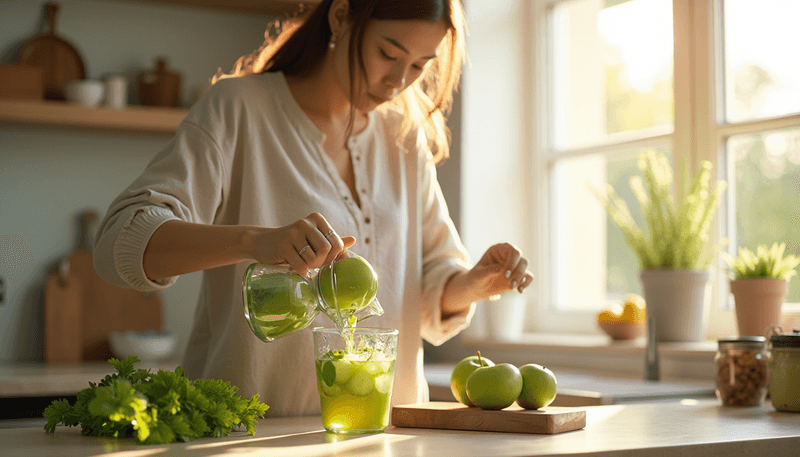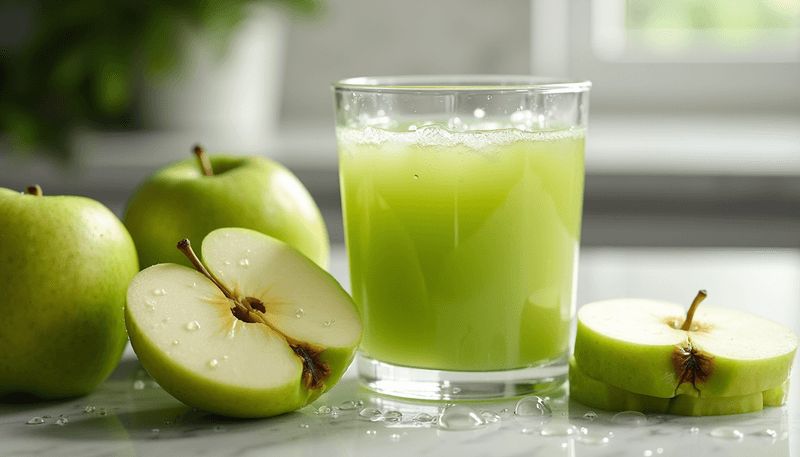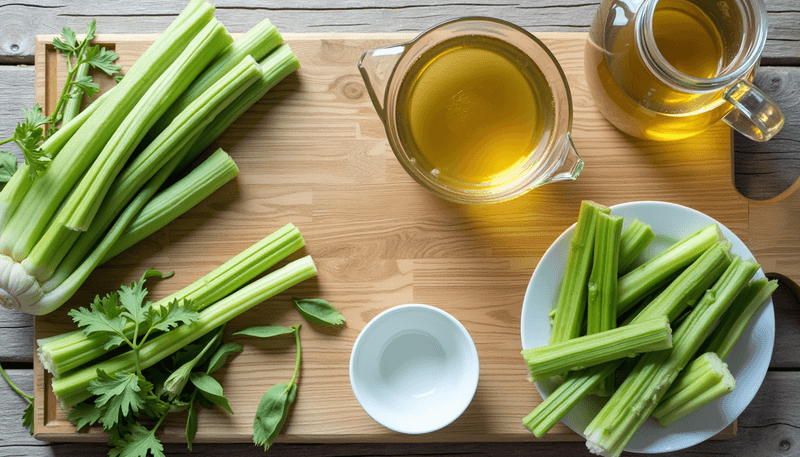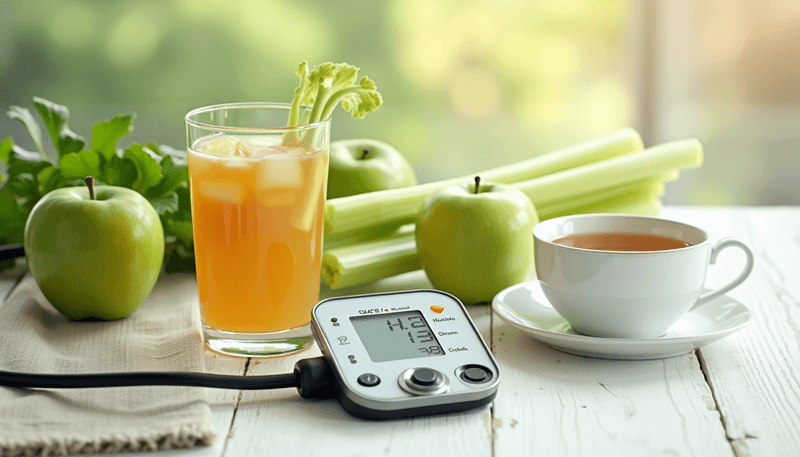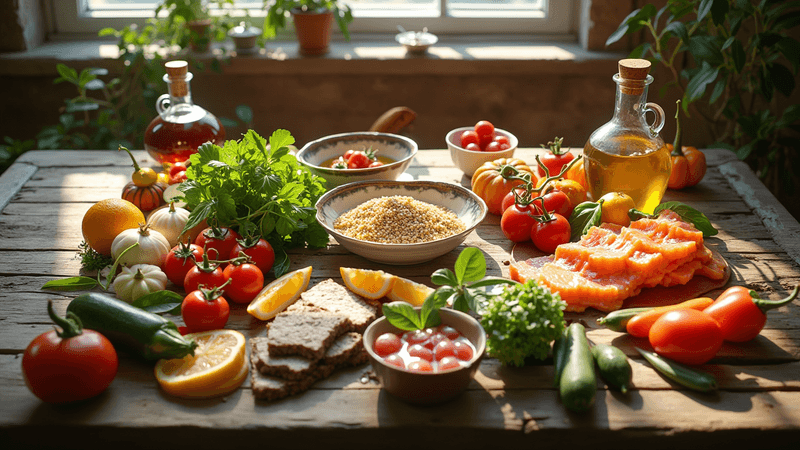Natural Ways To Lower Blood Pressure

Your morning cup of coffee might not be the only drink that affects your blood pressure. As someone who has personally navigated the challenges of managing blood pressure during menopause, I was intrigued by new research showing promising results with natural alternatives. The study reveals that two simple ingredients from your kitchen - green apples and celery - might hold the key to better blood pressure control.
The Power of Green Apples for Blood Pressure Control
Green apples aren't just refreshing - they're packed with blood pressure-lowering compounds. The magic lies in their high potassium content (107mg per 100g) which acts like a natural counterbalance to sodium in your body. Think of it as a see-saw: when potassium goes up, sodium's effects go down, helping to relax blood vessel walls.
Did you know? The amount of potassium in one green apple is equivalent to what your body loses in a 30-minute workout.
In my practice, I've seen numerous women experience positive results by incorporating green apple juice into their daily routine. Here's how you can do it:
- Blend one medium green apple with water to make 200ml of juice
- Drink it in the morning, before breakfast
- Maintain this routine for at least 7 days
- Keep the apple skin on - it contains additional beneficial compounds
Celery: The Unexpected Blood Pressure Hero
While many view celery as just a crunchy snack, this humble vegetable contains powerful compounds called apigenin and apiin. These natural substances work similarly to common blood pressure medications by helping blood vessels relax and widen.
Question: Have you ever noticed feeling more relaxed after eating celery? That's these compounds at work!
To make therapeutic celery tea:
- Choose fresh, crisp celery stalks with leaves
- Boil 200ml water
- Add cleaned, chopped celery
- Simmer for 10-15 minutes
- Strain and drink while warm
- Repeat daily for optimal results
Combining Natural Remedies with Lifestyle Changes
The study showed both remedies worked effectively, but here's the interesting part: green apple juice was better at lowering diastolic pressure (the bottom number), while celery tea showed stronger effects on systolic pressure (the top number).
For best results, consider these complementary strategies:
- Take regular blood pressure readings at the same time each day
- Stay physically active with gentle exercises like walking or swimming
- Maintain a consistent sleep schedule
- Reduce sodium intake
- Practice stress-management techniques
A participant in the study shared: "I was skeptical at first, but after a week of drinking green apple juice, my diastolic pressure dropped by 9 points!"
Both remedies showed significant benefits after just one week of consistent use. The study found that green apple juice reduced diastolic pressure by an average of 9.17 mmHg, while celery tea lowered systolic pressure by 15.17 mmHg.
These natural approaches offer several advantages:
- No harmful side effects when used as directed
- Easily accessible and affordable
- Can be prepared at home
- May complement existing treatments (consult your healthcare provider)
Your journey to better blood pressure control doesn't have to rely solely on medication. Start with one of these natural remedies - try the green apple juice if your diastolic pressure needs more attention, or opt for celery tea if your systolic reading is your main concern. Track your progress over a week, and share your experience with your healthcare provider.
Ready to take control of your blood pressure naturally? Which remedy will you try first - the refreshing green apple juice or soothing celery tea?
Remember to monitor your blood pressure regularly and consult with your healthcare provider before making significant changes to your treatment plan. Natural remedies can be powerful allies in your health journey, but they work best as part of a comprehensive approach to wellness.

Olivia Rose Chen-Martinez
Olivia Rose Chen-Martinez is a seasoned health and wellness writer with a focus on women’s health issues, including PCOS, perimenopause, and holistic wellness. With a background in Journalism and Public Health from UC Berkeley, Olivia draws on over 15 years of writing experience to deliver empathetic, research-backed insights. Her work blends personal anecdotes and actionable advice, resonating with readers seeking accessible and trustworthy information. Based in Austin, Texas, Olivia is also a certified yoga instructor and a dedicated advocate for balanced, integrative approaches to women’s health.
